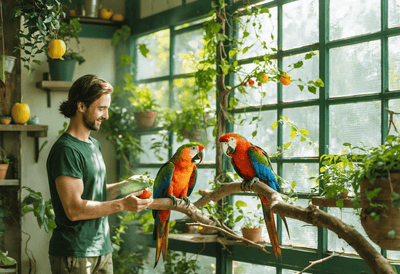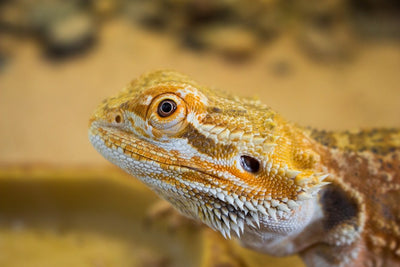Parakeets are one of the most popular bird species for pet owners, although it’s quite challenging to keep them healthy and happy. Every pet parakeet needs a safe and comfortable living space to thrive, which is why it’s essential to provide them with the right cage and accessories. A suitable cage setup can keep your parakeet entertained, secure, and happy. In this blog post, we will discuss the things that your parakeet needs in its cage to live its best life.
1. Cage Size
The most critical thing you need to consider when setting up your parakeet's cage is the size. The ideal cage for a parakeet should be at least 18 inches long, 18 inches wide, and 18 inches high. This size will allow your bird to have enough space for moving and stretching its wings without restricting its movements. The bars of the cage should also be spaced closely enough to prevent the bird from sticking its head out and getting hurt.
2. Perches
Just like in the wild, parakeets love to perch on vegetation to find food and rest. Therefore, providing your bird with different perches of various shapes, sizes, and textures is crucial. By doing this, your parakeet can strengthen its feet, fly, and play around the cage. Also, a variety of perches can prevent foot sores and injuries that may occur when your parakeet spends too much time on a single perch.
3. Toys and Accessories
Parakeets are playful and smart birds, so keeping them entertained is vital for their health. Toys and accessories like swings, mirrors, bells, and puzzles can keep them busy and stimulated when you're not around. Hanging toys in their cage also offers a twisting and climbing challenge that supports their physical activities. Remember always to rotate and move toys around the cage to avoid boredom and encourage exploration.
4. Food and Water
Parakeets need fresh food and water to maintain a healthy diet. It’s recommended to provide your bird with a water bottle or dish where they can drink or wash their face. You can also add water-soluble vitamins and minerals to their water to enhance their health. Food should be placed in an enclosed dish attached to the cage to avoid spills and spoilage. Parakeets love a variety of food, including fresh fruits, vegetables, and seeds.
5. Cleanliness
Maintaining cleanliness in your parakeet's cage is crucial to avoid diseases and infections. Parakeets tend to produce waste and shed feathers, so you need to keep their cage clean and dry. You can use a special bird cage cleaner or natural vinegar solution to clean the cage often, and replace the liners and wipe down the perches. It's also crucial to check regularly for any droppings or food residue and clean up immediately.
In summary, providing your parakeet with a comfortable and stimulating living space is fundamental to their health and happiness. A cage size of at least 18 inches by 18 inches with closely spaced bars, various perches, and engaging toys, along with fresh food and water, is the best way to create an ideal habitat. Keeping their cage clean and dry can help prevent diseases and infections. With proper setup and care, your parakeet can thrive and live a long and happy life.






